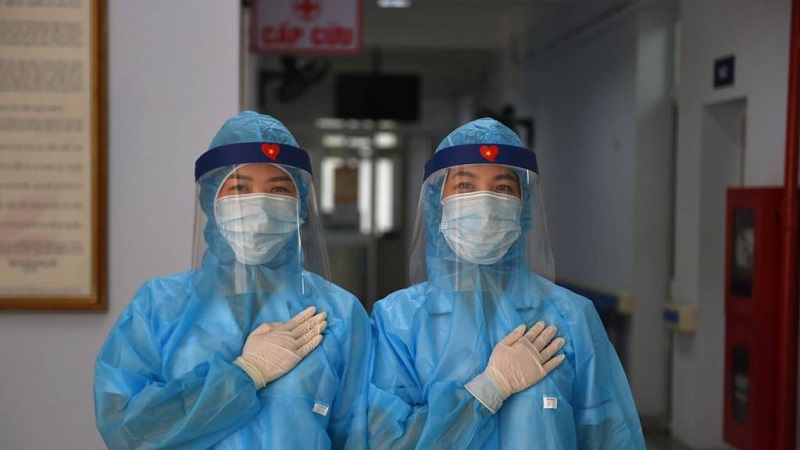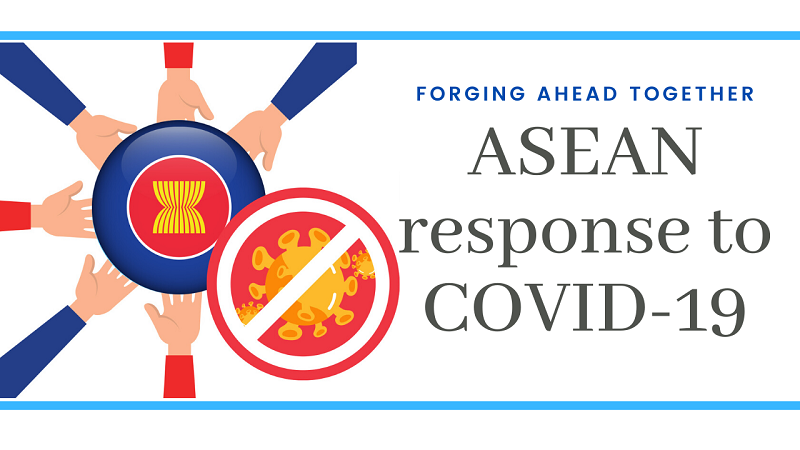How Vietnam’s Covid-19 success supports its regional role?
Under the Vietnam Chair 2020, ASEAN has combated the pandemic in a cohesive manner.
A famous international expert believes that Vietnam’s response to the pandemic has resulted in some good lessons for its regional peers.
Vietnam dedicated to battle against Covid-19. Photo: Getty Images |
“Vietnam’s success in containing Covid-19 enhances the credibility of Vietnam’s leadership role as ASEAN Chair in the regional fight against the coronavirus,” commented Emeritus Professor Carl Thayer of the University of New South Wales, Canberra.
“Other ASEAN members that are struggling against the coronavirus can look to Vietnam’s experience as they work together to devise a regional response. Vietnam’s success in the fight against the coronavirus is also reassuring ASEAN members that Vietnam can devote the time and energy needed as ASEAN Chair to address how ASEAN members can plan their recovery,” he added.
So far, all ASEAN member states have suffered from Covid-19 with Indonesia having the most confirmed cases, 483,518 and 15,600 deaths, followed by the Philippines with 413,430 infections and 7,998 deaths; Myanmar 73,322 and 1,650; Singapore 58,139 and 28; Malaysia 50,390 and 322, respectively.
Vietnam has reported 1,300 cases and 35 deaths. As of November 19, the country has undergone 78 days without local transmission.
| Vietnam makes efforts to keep ASEAN joint hands in the pandemic |
Vietnam said that Covid-19 has proven that Vietnam’s theme of "Cohesive and Responsive" is best suited to the current situation. Indeed, the country’s performance during the pandemic, including Hanoi’s response to the coronavirus outbreaks has made the way it leads the region’s efforts.
According to Prof. Thayer, the outbreak of Covid-19 was unexpected and it upended ASEAN’s advance planning to deal with a range of issues, such as community building. Under Vietnam’s leadership, videoconferencing was introduced to bring ASEAN leaders together to agree on common policies.
For example, under Vietnam’s chairmanship, a videoconference of ASEAN health ministers was held in April. Vietnam was also quick to organize a videoconference of the ASEAN Plus Three including China, Japan and South Korea to obtain external assistance to fight the coronavirus, Prof. Thayer said.
Vietnam postponed the 36th Annual Summit and convened a Special ASEAN Summit on the Coronavirus Disease by videoconference. This was an important initial step in securing consensus on the way forward by setting up a Covid-19 Fund to purchase and share medical supplies and support.
At the 36th ASEAN Summit, leaders emphasized the importance of undertaking responsive and timely measures to address the impact of the pandemic on vulnerable sectors, including women, children, youth, the elderly, and persons with disabilities.
The bloc agreed to intensify efforts in safeguarding public goods such as health, education, and human security; create systemic changes to policy frameworks, as necessary, to reduce inequality and provide equitable access to opportunities for all, especially vulnerable and marginalized groups, including children, women, people with disabilities, elderly people and migrant workers, in accordance with domestic laws and international obligations, says the ASEAN Leaders’ Vision Statement.
Enhance regional platforms to promote equitable opportunities, participation and effective engagement of women, children, youth, the elderly/older persons, persons with disabilities, people living in remote and border areas, and vulnerable groups in the development and implementation of ASEAN policies and programs, reads the statement.
In the 37th ASEAN Summit that concluded in Hanoi in November 15, the regional countries ratified the ASEAN Comprehensive Recovery Framework to make it basis for the joint efforts in promoting the economic recovery in the whole region.













